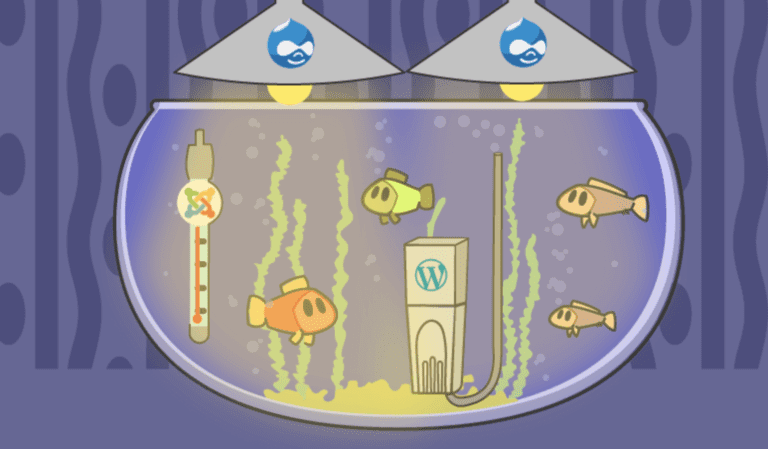
Unix hosting has long been a popular choice among web developers and businesses alike, largely due to its open-source nature, stability, and robust security features.
Despite its numerous advantages, there are certain drawbacks to using Unix hosting that can impact your website and its performance.
In this article, we will delve into the cons of Unix hosting, examining the issues you may encounter and offering alternative solutions for your consideration.
Limited Compatibility with Windows Applications
One of the most significant disadvantages of Unix hosting is its limited compatibility with Windows-based applications. While Unix systems support a wide range of open-source software, certain proprietary Windows applications may not be compatible with Unix-based platforms. For example, Microsoft Office, Visual Studio, and SharePoint are designed to work seamlessly with Windows servers, but they might not function optimally on Unix-based systems.
If your website or project requires the use of specific Windows applications, you may want to consider Windows hosting instead. This will ensure compatibility with your desired software and a smoother overall user experience.
Steeper Learning Curve
Unix hosting is known for its powerful command-line interface, which can be a double-edged sword for users. While the command line offers greater control and customization, it also requires a steeper learning curve compared to the more user-friendly graphical user interfaces (GUIs) found in Windows hosting environments. This can be particularly challenging for novice webmasters or individuals who lack prior experience with Unix-based systems.
To mitigate this challenge, users can opt for control panels like cPanel or Webmin, which provide a graphical interface for managing Unix-based servers. Additionally, investing time in learning the basics of Unix commands can empower users with greater control over their hosting environment.
Limited Support for .NET Framework
The .NET framework, developed by Microsoft, is an essential tool for many web developers who create web applications using languages like C# and VB.NET. Unfortunately, Unix hosting environments do not natively support the .NET framework, which can restrict the development and deployment of such applications.
If your website or application relies heavily on the .NET framework, you may want to consider Windows hosting, which offers native support for .NET technologies. Alternatively, you can explore open-source alternatives like Mono or .NET Core, which enable the deployment of .NET applications on Unix-based systems, albeit with potential compatibility issues.
Customer Support Challenges
Given the open-source nature of Unix hosting, the level of customer support available can vary significantly between hosting providers. Some providers may offer extensive documentation and support forums, while others may lack the resources to provide comprehensive assistance. This can make troubleshooting and resolving issues a more time-consuming and challenging process.
When choosing a Unix hosting provider, prioritize those with a reputation for strong customer support. Look for providers that offer 24/7 assistance via multiple channels, such as live chat, phone, or email, to ensure that help is readily available when needed.
Hardware and Driver Compatibility
Unix-based systems can occasionally struggle with hardware and driver compatibility. Although most modern hardware is supported, users may encounter compatibility issues with certain peripherals or components, particularly if they are using older or less common hardware.
Before committing to Unix hosting, verify that your hardware is compatible with the Unix platform. Additionally, consider using widely supported hardware to minimize compatibility issues.
Less Intuitive File and Folder Permissions
Unix hosting platforms use a different system for file and folder permissions compared to Windows-based systems. While Unix permissions offer greater flexibility and control, they can be less intuitive for users who are not familiar with the platform. This may result in confusion and increased potential for errors when managing permissions on your server.
Invest time in learning the basics of Unix file and folder permissions to better understand and manage your hosting environment. There are numerous tutorials and resources available online that can guide you through the process. Moreover, using control panels like cPanel or Webmin can simplify the management of file and folder permissions through a more user-friendly interface.
Potential Software Licensing Costs
While Unix hosting platforms often support a wide range of open-source applications, certain premium software options may require licensing fees. These costs can add up over time, particularly if you require multiple licenses for various applications or plugins. Additionally, some commercial software may not be available for Unix-based systems, limiting your options.
Carefully research the software requirements for your website or application before committing to Unix hosting. Identify open-source alternatives that can potentially save you money on licensing fees while still providing the functionality you need. Alternatively, consider whether a different hosting platform may better suit your software needs.
Limited Access to Popular Website Builders
Many popular website builders, such as Wix and Weebly, are designed to work seamlessly with certain hosting environments, often Windows-based platforms. As a result, Unix hosting users may find that they have limited access to these user-friendly website builders, which can make it more challenging to design and deploy a website quickly and efficiently.
Look for website builders that are compatible with Unix hosting environments, such as WordPress, Joomla, or Drupal. These open-source content management systems (CMS) offer powerful website-building capabilities and can be easily installed on Unix-based servers.
Conclusion
While Unix hosting offers numerous advantages in terms of security, stability, and open-source support, there are some drawbacks to consider before making a decision. By understanding the cons associated with Unix hosting, you can make an informed choice that best meets the needs of your website or application.
Keep in mind that the right hosting solution will depend on your specific requirements, such as software compatibility, ease of use, and support needs. Carefully weigh the pros and cons of Unix hosting against other hosting platforms, such as Windows hosting or even cloud-based solutions, to find the best fit for your project.




